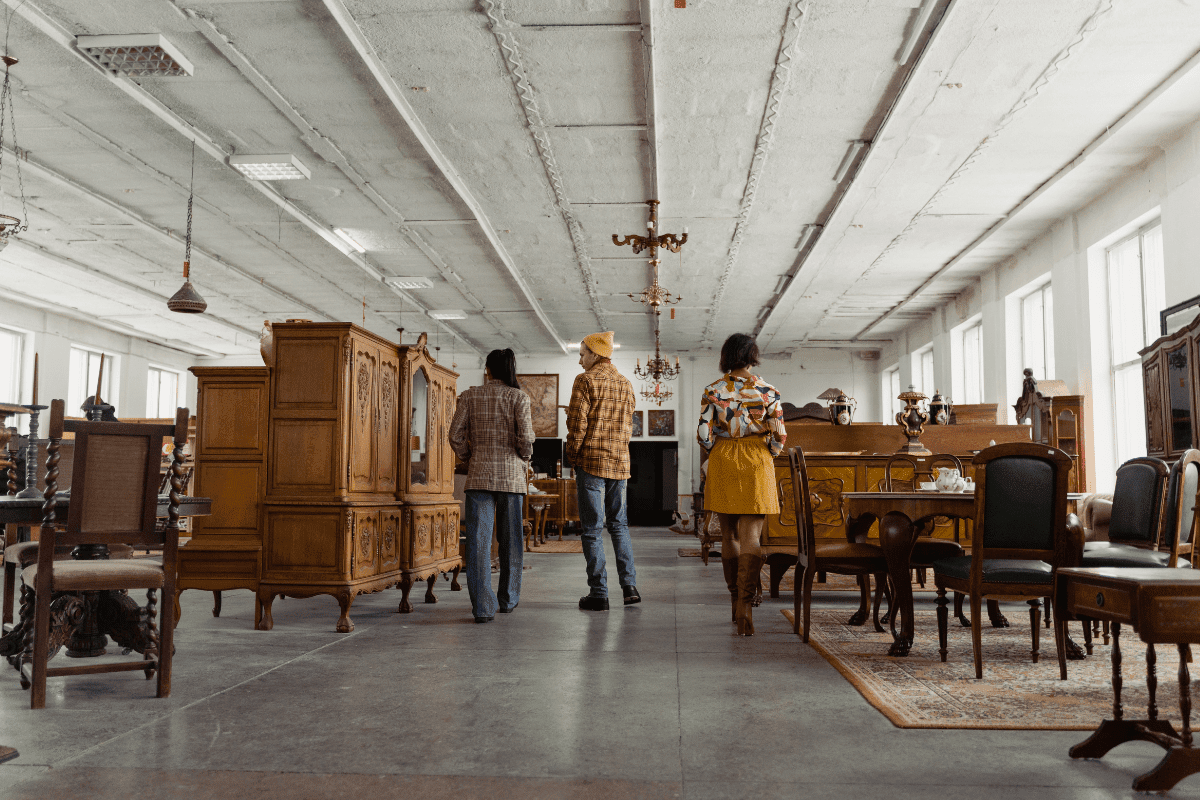Finding the right after-school program in Omaha feels like shopping for cereal at a mega-store… overwhelming choices, conflicting claims, and somehow your kid still ends up wanting the one with the toy inside. But here's the thing: with over 100 organizations serving K-12 students across the metro, Omaha actually has one of the best after-school scenes in the Midwest. From free basketball leagues to coding camps that cost more than your car payment, there's genuinely something for every family's budget and every kid's interest.
The landscape of opportunity spans every interest and age
Let me paint you a picture of what we're working with here. Omaha's after-school ecosystem includes two major coordinating powerhouses that basically run the show.
First, there's Collective for Youth, managing programs in 42 Omaha Public Schools and serving over 7,000 students. Then you've got Partnership 4 Kids, supporting 3,000 students with wraparound services and achieving a 97% graduation rate (the district average is 78%, so yeah, they're doing something right).
What makes Omaha special isn't just the sheer number of programs. It's that 87% of Collective for Youth participants are minority students, 22% are English language learners, and multiple programs specifically serve kids with special medical and developmental needs. This isn't some exclusive club… it's a community that actually serves its community.
The variety is honestly ridiculous. The Boys & Girls Clubs operate 12 metro locations with completely free membership. School of Rock Omaha charges $150-350 monthly but your kid gets to play actual concerts at places like Summerfest Milwaukee. The Rose Theater runs a 27,000 square foot facility (largest youth theater space in America, thank you very much) with classes at $70 per month and financial aid so no kid gets turned away.
Understanding the real costs (and the free stuff nobody tells you about)
Let's talk money, because I know that's what you're really wondering about. The pricing spectrum looks something like this:
Completely free options:
- Boys & Girls Clubs (all locations)
- PACE sports programs
- UNO's NE STEM 4U
- Do Space coding classes
- Library tutoring programs
Middle-tier pricing ($45-150/month):
- Kids Can Community Center ($45/week)
- YMCA sports ($50-150 per season)
- Dance and music group classes ($70-100/month)
- Rose Theater classes ($70/month)
Premium programs ($150-350/month):
- School of Rock performance programs
- Private music lessons
- Intensive tutoring at Sylvan
- Specialized camps and training
Here's what nobody mentions: even the expensive programs usually have financial aid. The Rose Theater literally states "no child turned away for economic reasons." School of Rock has scholarships. The Jewish Community Center charges $75 monthly for taekwondo for your first kid, but by the fourth child? Free. Because apparently they understand how reproduction works.
Sports programs that actually build character (not just trophies)
Basketball reigns supreme in Omaha's youth sports scene, with more leagues and participants than any other sport. But the real story is accessibility.
The YMCA of Greater Omaha runs six locations with youth leagues starting at age 3. Register during their early bird window (August 18-September 2) and save $10 per sport. Miss the September 22 deadline? That'll be a $15 late fee, which honestly serves you right for procrastinating.
PACE (Police Athletics for Community Engagement) offers completely free sports programs including baseball, basketball, flag football, soccer, and even jiu-jitsu. Their summer soccer registration runs April through June, and yes, it's actually free. Not "free with purchase" or "free trial" … just free.
For families needing adaptive programs, NorthStar Foundation uses a sliding fee scale and provides all equipment at no cost. Their double-court gym at Fred & Pamela Buffett Cancer Center hosts both recreational YMCA leagues (1-2 practices weekly) and competitive teams (2-3 practices weekly).
Swimming deserves its own paragraph because Omaha goes hard on aquatics. Diventures has won "Best of Omaha" 11 times for youth swim lessons. You can choose from:
- YMCA adaptive swim lessons
- Goldfish Swim School's SwimPlay® program
- Swimtastic's year-round offerings
- Multiple private swim clubs
Creative arts programs that nurture more than just talent
The arts scene here will make you wonder why you're living anywhere else. The Rose Theater anchors everything with their Studios for Youth Artists program. Beyond regular classes, they offer themed musical theater programs around Disney and Broadway shows. December showcases and May concerts mean your kid gets real performance experience, not just participation ribbons.
School of Rock Omaha takes a completely different approach. Kids get weekly private lessons plus group band rehearsals, then perform at actual venues. We're talking real concerts at real places where real people pay real money to watch. Their Performance Program students have played major festivals. Is it worth $250-350 monthly? Ask the kid who just played guitar in front of 500 people.
Visual arts thrive at Hot Shops Art Center in South Omaha, where 90+ working artists offer workshops. Glassblowing runs $77 per session. Your kid learns from actual professional artists, not someone who took a community ed class once. Heart & Soul Art Studio in Bennington runs "Mom & Me" classes because they get that sometimes you want to hot glue things together too.
STEM education that actually prepares kids for real careers
Omaha's STEM game is strong, and I'm not just saying that because everyone says STEM is important. The numbers back it up.
UNO's NE STEM 4U program serves 8,000+ students annually at absolutely no cost. They maintain a 97% retention rate for their 200+ undergraduate mentors, creating this beautiful cycle where today's participants become tomorrow's mentors. It's like STEM karma.
Code Ninjas Omaha gamifies coding by teaching programming through video game creation. At $225-250 per week for camps, it's not cheap, but your kid learns actual programming languages, not just how to move a cartoon cat around the screen.
For the budget-conscious (aka most of us), Do Space offers completely free 5-week coding cohorts covering:
- HTML/CSS basics
- JavaScript fundamentals
- C# programming
- Web development projects
Robotics programs span from "let's see if we can make this thing move" to "we're going to nationals." FIRST LEGO League divides kids into three age-appropriate divisions from 4-14. Teams from Liberty Elementary and St. Robert Bellarmine regularly compete using VEX IQ and LEGO Mindstorm platforms.
The programs you won't find anywhere else
Some Omaha programs are so unique, other cities send people here to figure out how we do it.
Our Place After School Care made history in August 2018 as Nebraska's first after-school program for teens with disabilities. They serve youth through age 21 with individualized education and life skills training. Their Freedom Factory store lets participants sell items they create on commission. Real business skills, real money, real impact.
The sliding fee scale starts at $17/hour but adjusts based on income. Other states now use this as a model, which makes us pretty proud.
Omaha Public Schools launched their Dual Language Immersion program in 1998 with a $2.5 million federal grant. Now spanning 10 schools, students get 50% of instruction in Spanish. The research shows these kids have improved cognitive abilities and better standardized test scores. The Omaha Catholic School Consortium offers the city's only faith-based dual language option, with over $1 million in financial aid distributed last year.
Medical and therapeutic programs that go beyond basic care
For families with kids who need specialized support, Omaha delivers in ways that'll make you grateful.
The UNMC Munroe-Meyer Institute employs trained recreation therapists working with K-12 students and transition program participants through age 21. They provide OPS busing, which removes that huge barrier many special needs families face.
Children's Respite Care Center serves medically complex children with IEP-coordinated services, adaptive equipment, and specialized teachers. Both programs understand that "after-school care" means very different things for different families.
Making sense of enrollment (before everything fills up)
Here's your enrollment timeline cheat sheet:
Spring (March-April): Most programs open registration for fall. This is go-time. Set phone alerts. Mark calendars. Bribe your organized friend to remind you.
May: Early bird discounts end. If you missed them, don't beat yourself up… there's always next year.
August: YMCA sports early bird window (August 18-September 2). Save $10 per sport.
February: Summer camp registration opens. The good ones fill fast.
You'll need:
- Completed enrollment forms
- Current immunization records
- Proof of address
- Income verification (sliding-scale programs)
- Deposit/first week payment
Pro tip: Apply to multiple programs simultaneously. Popular options like dual language immersion and specialized STEM programs fill immediately. Kids Can Community Center requires individual meetings with their Site Director, so schedule early.
The real impact (backed by actual data)
Let's get nerdy with some numbers that actually matter.
Students in 21st Century Community Learning Centers show:
- 77% improvement in math
- 76% improvement in science
- 76% improvement in reading
Partnership 4 Kids achieves that 97% graduation rate I mentioned earlier. Their president, Deb Denbeck, calls it "a 5-to-1 return on the dollar," making it one of the most efficient programs in the country.
For parents, the benefits are equally clear:
- 84% keep their jobs
- 89% have peace of mind
- 56% report excited learners
Nearly half of chronically absent students improve attendance. Two in five see decreased suspensions. Seven in ten show improved learning engagement. These aren't just feel-good statistics… they're life-changing outcomes.
Expert insights from people who actually know
Gwynette Williams from Collective for Youth has trained 1,851 youth development staff since April 2021. When surveyed, students rate adult respect at 3.59 out of 4.0. They enjoy their programs at the same level. That's not accident… that's intentional quality.
The Buffett Early Childhood Institute research confirms what parents see: quality after-school programs change trajectories. Not just grades. Not just behavior. Entire life paths.
Your action plan for finding the perfect fit
Ready to dive in? Here's your quick decision guide:
For free quality programs: Start with Boys & Girls Clubs. Seriously, they're free and excellent.
Sports focused: YMCA for variety, PACE for free options
Arts excellence: Rose Theater has the facilities and expertise
STEM futures: UNO NE STEM 4U (free) or Prairie STEM (results)
Special needs: Our Place or UNMC Munroe-Meyer
Academic support: Sylvan Learning for proven results
Bilingual goals: OPS Dual Language programs
Remember that statistic about 93% parent satisfaction? That's not luck. That's Omaha doing after-school right. With 10,000+ kids participating and four more wanting in for every spot available, these programs transform communities one kid at a time.
Start with what interests your child, consider your budget and logistics, then take the leap. Because somewhere in Omaha's vast after-school landscape is a program that'll turn your kid's "I'm bored" into "Can we stay five more minutes?" And really, isn't that worth searching for?





